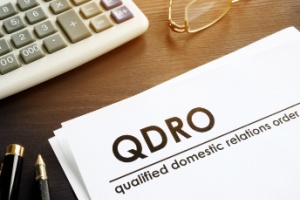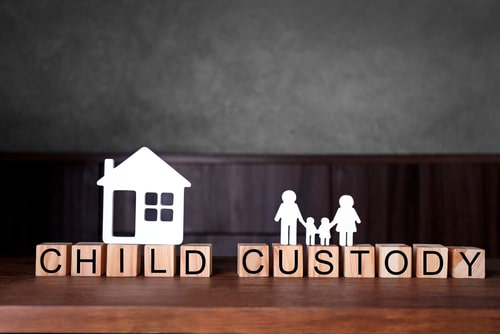
Recent Blog Posts
Navigating Life After Divorce: A Comprehensive Checklist
 Divorce is a profound personal and legal transition, marking the end of one chapter and the beginning of another. The aftermath of a divorce decree involves several steps—legal, financial, and emotional—to ensure a smooth transition into this new phase of life. Whether your divorce was amicable or contentious, this checklist will guide you through the essential actions needed post-divorce to protect your interests and lay the groundwork for your future.
Divorce is a profound personal and legal transition, marking the end of one chapter and the beginning of another. The aftermath of a divorce decree involves several steps—legal, financial, and emotional—to ensure a smooth transition into this new phase of life. Whether your divorce was amicable or contentious, this checklist will guide you through the essential actions needed post-divorce to protect your interests and lay the groundwork for your future.
- Understanding Your Divorce Decree
Upon completion of your divorce, it is essential for you to be familiar with your divorce decree/judgment. Your judgment outlines your rights, responsibilities, and the agreements reached on asset division, debt allocation, child support, custody and child related arrangements, and maintenance. You should re-read your decree and familiarize yourself with all of the terms. It is imperative you have a clear grasp of the agreement, as it will guide many of your post-divorce decisions and actions. If you are unsure regarding provisions of the agreement, you should speak to a lawyer before taking any actions.
What is a Qualified Domestic Relations Order (QDRO) and how are Retirement Accounts Divided in Divorce?
 Employment benefits can vary significantly from company to company. While these benefits are specifically designated for the employee, they are also generally considered a marital asset subject to division in a divorce. Retirement benefits are one of the most common types of employment benefits offered, and due to the nature of these types of accounts, they must be very thoroughly addressed in divorce settlement agreements to ensure calculations are correctly handled and that there are no tax implications or penalties for either spouse.
Employment benefits can vary significantly from company to company. While these benefits are specifically designated for the employee, they are also generally considered a marital asset subject to division in a divorce. Retirement benefits are one of the most common types of employment benefits offered, and due to the nature of these types of accounts, they must be very thoroughly addressed in divorce settlement agreements to ensure calculations are correctly handled and that there are no tax implications or penalties for either spouse.
The most common type of retirement account employers offer nowadays is a 401k plan, which is an employer sponsored plan wherein funds come out of the employee’s paycheck (not subject to taxes) and are often matched, to some extent, by the employer. This is known as a defined contribution plan, meaning it’s an investment account with a specific balance that grows and fluctuates with the market. If employment ends, the account is generally rolled into an Individual Retirement Account (IRA). Other types of defined contribution plans that employers may offer include 403(b) accounts, which is essentially the equivalent of a 401k but via a public company or 503(c) organization, Simple or SEP IRAs, which are tax deferred retirement options available to small businesses, and 409a plans, or deferred compensation accounts, which are not qualified plans available to high wage earners which allows them to defer tax on certain income.
Understanding and Navigating the Custody Evaluation Process 604.10(b)
 In contested cases involving minor children, if mediation fails, it is possible that a clinical psychologist will be appointed by the court to conduct an investigation and prepare a report. This can be done by request of either party, or in some cases, sua sponte by the court, meaning on its own accord. When a custody evaluation is ordered in your family law case, it’s imperative that you are fully prepared for the process, as the court will rely heavily on this expert witness in determining the issues involving your children.
In contested cases involving minor children, if mediation fails, it is possible that a clinical psychologist will be appointed by the court to conduct an investigation and prepare a report. This can be done by request of either party, or in some cases, sua sponte by the court, meaning on its own accord. When a custody evaluation is ordered in your family law case, it’s imperative that you are fully prepared for the process, as the court will rely heavily on this expert witness in determining the issues involving your children.
First and foremost, you should be aware of the costs associated with the evaluation. Likely the cost will be paid from marital funds or otherwise divided, most commonly equally, but sometimes in a different proportion. This will be set by the court in its’ order. The evaluator charges at an hourly rate and some counties (DuPage and Kane) have placed a cap on fees an evaluator can charge pursuant to local rule. The cap does not include deposition costs or trial costs. To get off on the right foot with the evaluator, you should be prepared to timely pay any required retainer
Navigating Divorce in Illinois While Pregnant: A Comprehensive Guide

Divorce is a challenging life event, and when coupled with the anticipation of a new life through pregnancy, it can become an overwhelmingly stressful situation. The state of Illinois has specific laws and regulations surrounding divorce while pregnancy is involved, making it crucial for expectant parents to understand their rights and responsibilities during this delicate period. In this blog post, we aim to provide a comprehensive guide on navigating a divorce in Illinois while pregnant.
Understanding Illinois Divorce Laws
Before we delve into the specifics of divorce during pregnancy, let's first understand the basics of divorce laws in Illinois. Illinois follows the no-fault divorce principle, meaning that neither spouse needs to prove misconduct or wrongdoing to file for divorce and those actions are not relevant to the court for determining support or division of assets. The primary grounds for divorce in Illinois is irreconcilable differences also known as the irretrievable breakdown of the marriage. That said, if there is domestic violence involved, it can impact issues surrounding children, including parenting time and allocation of parenting responsibilities.
Modifying Child Support After an Illinois Divorce
 Getting a child support order modified after a divorce can be challenging but not impossible. There are specific legal procedures and requirements to change an existing support order successfully. An Illinois lawyer can help ensure you are going through the process correctly.
Getting a child support order modified after a divorce can be challenging but not impossible. There are specific legal procedures and requirements to change an existing support order successfully. An Illinois lawyer can help ensure you are going through the process correctly.
Grounds for Child Support Modification in Illinois
Either parent can file a petition to modify child support if there has been a “substantial change in circumstances.” The change must be significant and non-temporary.
Common significant changes that may warrant a modification include:
-
A major increase or decrease in either parent’s income
-
One parent losing their job or taking a lower paying job
Divorcing a Narcissist: Navigating the Process for Yourself and Your Children
 If you are married to a person who displays strong signs of narcissism, likely you will find yourself in a divorce proceeding at some point in your marriage. Narcissistic Personality Disorder (NPD) is a mental health condition in which is diagnosed by evaluating the nine criteria enumerated by the DSM-5, the American Psychiatry Association’s manual regarding mental disorders. The criteria include: (1) inflated sense of self-importance; (2) preoccupation with power, brilliance, beauty or success; (3) belief they are “special” and “unique”; (4) desire to be admired excessively; (5) sense of entitlement and unreasonable expectations; (6) Interpersonally exploitative; (7) Lacks empathy; (8) Arrogant; and (9) Envious of others or believes others are envious of them. Displaying only one of these characteristics does not necessarily make someone a narcissist, though it is not required that a person display all of these characteristics to be a narcissist either.
If you are married to a person who displays strong signs of narcissism, likely you will find yourself in a divorce proceeding at some point in your marriage. Narcissistic Personality Disorder (NPD) is a mental health condition in which is diagnosed by evaluating the nine criteria enumerated by the DSM-5, the American Psychiatry Association’s manual regarding mental disorders. The criteria include: (1) inflated sense of self-importance; (2) preoccupation with power, brilliance, beauty or success; (3) belief they are “special” and “unique”; (4) desire to be admired excessively; (5) sense of entitlement and unreasonable expectations; (6) Interpersonally exploitative; (7) Lacks empathy; (8) Arrogant; and (9) Envious of others or believes others are envious of them. Displaying only one of these characteristics does not necessarily make someone a narcissist, though it is not required that a person display all of these characteristics to be a narcissist either.
Spanking and Corporal Punishment in Illinois: How Far is Too Far?
 Often as parents, we are faced with the difficult question of how to best discipline our children. This issue becomes even more complicated when parents are navigating a divorce or other court proceedings. Today, many people view physical discipline, specifically spanking, as a form of outdated punishment and accordingly parents do not allow caretakers to use physical discipline on their children. However, there are still some parents who view spanking and other physical discipline as permissible and appropriate forms of discipline for children. In order to avoid a negative impact on parental rights during a court case, or even an indicated finding by the Department of Children and Family Services (DCFS), it is essential that parents are advised correctly as it relates to disciplining children with corporal punishment.
Often as parents, we are faced with the difficult question of how to best discipline our children. This issue becomes even more complicated when parents are navigating a divorce or other court proceedings. Today, many people view physical discipline, specifically spanking, as a form of outdated punishment and accordingly parents do not allow caretakers to use physical discipline on their children. However, there are still some parents who view spanking and other physical discipline as permissible and appropriate forms of discipline for children. In order to avoid a negative impact on parental rights during a court case, or even an indicated finding by the Department of Children and Family Services (DCFS), it is essential that parents are advised correctly as it relates to disciplining children with corporal punishment.
The Illinois Marriage and Dissolution of Marriage Act outlines the factors the court considers when determining parenting time and decision-making responsibilities for parents. These factors, commonly known as the “best interests” factors, include whether physical violence is present as well as whether there is any abuse against the child. The Abused and Neglected Child Reporting Act defines “abused child” as “a child whose parent or immediate family member, or any person responsible for the child’s welfare, or any individual residing in the same home as the child, or a paramour of the child’s parent… inflicts excessive corporal punishment.” 325 ILCS 5/3. Unfortunately, the term “excessive” is not defined under the act which leaves room for question and doubt for parents who choose to use corporal punishment.
Is My Spouse Entitled to Half of My Business?
 When parties begin to negotiate the division of their marital assets and debts, the issue of how a business interest will be treated or divided arises. Owning a business can be stressful, and often times requires years of sacrifice, so making sure that your business interest is protected, is extremely important to many business owners. Conversely, those spouses who have supported their spouse in the growth of their business, or even have directly contributed to its value (working for the business, using marital funds to purchase items for the business, etc.), feel a sense of ownership or entitlement to the business despite whose name is on the ownership paperwork. This begs the question, how is a business interest viewed in a divorce and am I/is my spouse entitled to a monetary value for it?
When parties begin to negotiate the division of their marital assets and debts, the issue of how a business interest will be treated or divided arises. Owning a business can be stressful, and often times requires years of sacrifice, so making sure that your business interest is protected, is extremely important to many business owners. Conversely, those spouses who have supported their spouse in the growth of their business, or even have directly contributed to its value (working for the business, using marital funds to purchase items for the business, etc.), feel a sense of ownership or entitlement to the business despite whose name is on the ownership paperwork. This begs the question, how is a business interest viewed in a divorce and am I/is my spouse entitled to a monetary value for it?
The first question that needs to be resolved in any divorce case involving a business is: When was the business started? In order for the business to be considered a marital asset subject to division, the business must have been formed during the marriage. If you are a business owner and you know you started the business before the marriage, it’s important that you retrieve any documents that prove you started the business interest prior to the marriage, as the burden of showing that the business is non-marital falls upon the business owner. Documents such as the letters of incorporation, tax returns, or a contract showing the purchase of the business, are examples of documents that can be used to establish that your business is non-marital. Having the court declare that your business is non-marital, means that your spouse won’t be entitled to a portion of the value of the business. However, the value of the non-marital business may still be relevant as if the court finds the value is substantial, then the court may consider the value of it when determining what an “equitable” division of the marital estate will be. For example, if you have non-marital assets in the amount of $1 million, and your marital estate is $2 million, the court may award you less than 50% of the marital assets (the division could be 60-40 or otherwise disproportionate).
How is Maintenance/Spousal Support Determined When the Statutory Guidelines Don’t Apply to High Wage Earners?
 In 2016, the Illinois legislature attempted to create uniformity behind maintenance awards (formerly known as alimony) in dissolution of marriage proceedings by establishing a statutory formula for its calculation. The theory behind the change to the law was that by instituting the guidelines there would be less variation from judge to judge and county to county than there had been prior to 2016. The maintenance guideline formula is contained in the Illinois Marriage and Dissolution of Marriage Act, Section 504, and provides for both a guideline amount and duration for spousal support, as well as a percentage cap based upon the spouses combined incomes (the recipient shall receive no more than 40% of the combined total net income). The current statute (revised most recently in 2019) sets support based on the net incomes of each party (compared to being based upon gross income pre-2019) and the duration is based upon a multiplying factor considering the length of the marriage through the date a petition for divorce is filed. Specifically, the award is 33 1/3% of the payor’s net income less 25% of the payee’s net income (subject to the same cap from the 2016 version). Although the court can deviate from these guidelines when they apply, a deviation is rare and there typically needs to be a court-approved basis for doing so; such as one party having a greater capacity to earn income than evidenced on paper or a party having substantial nonmarital assets like an inheritance.
In 2016, the Illinois legislature attempted to create uniformity behind maintenance awards (formerly known as alimony) in dissolution of marriage proceedings by establishing a statutory formula for its calculation. The theory behind the change to the law was that by instituting the guidelines there would be less variation from judge to judge and county to county than there had been prior to 2016. The maintenance guideline formula is contained in the Illinois Marriage and Dissolution of Marriage Act, Section 504, and provides for both a guideline amount and duration for spousal support, as well as a percentage cap based upon the spouses combined incomes (the recipient shall receive no more than 40% of the combined total net income). The current statute (revised most recently in 2019) sets support based on the net incomes of each party (compared to being based upon gross income pre-2019) and the duration is based upon a multiplying factor considering the length of the marriage through the date a petition for divorce is filed. Specifically, the award is 33 1/3% of the payor’s net income less 25% of the payee’s net income (subject to the same cap from the 2016 version). Although the court can deviate from these guidelines when they apply, a deviation is rare and there typically needs to be a court-approved basis for doing so; such as one party having a greater capacity to earn income than evidenced on paper or a party having substantial nonmarital assets like an inheritance.
Dating During the Divorce Process
 Many individuals who are going through a divorce often start dating other people before their case is finalized. While it is great that they feel emotionally ready to take on a new relationship, there could be potential consequences to dating while also unwinding the marriage with their current spouse. Although Illinois law does not prohibit dating during the divorce process, that does not mean that dating will not present its own set of challenges for your case, especially when there are children involved. So, for those who are thinking of dating during divorce, this blog will discuss four important considerations to keep in mind before doing so.
Many individuals who are going through a divorce often start dating other people before their case is finalized. While it is great that they feel emotionally ready to take on a new relationship, there could be potential consequences to dating while also unwinding the marriage with their current spouse. Although Illinois law does not prohibit dating during the divorce process, that does not mean that dating will not present its own set of challenges for your case, especially when there are children involved. So, for those who are thinking of dating during divorce, this blog will discuss four important considerations to keep in mind before doing so.
-
The Impact Dating May Have on Your Children
If you have children, dating during divorce can be tricky and sometimes confusing for them. During the divorce process, children often need stability as it is not just a vulnerable time for you, but also for them. For many kids, the thought of their parents divorcing is a difficult pill to swallow because it raises concerns and anxiety over possible changes to their current lifestyle (i.e. which parent they are going to live with, how often they will see the other parent etc.). It can also create feelings of isolation from peers who have intact families or married parents. Therefore, introducing them to a new partner can sometimes make an already difficult time worse. It is important to be sure that the relationship is serious before introducing them to your new significant other. With that said, introducing your children to a new partner may also have a positive impact on them if your children like and trust your new significant other.

 630-407-1200
630-407-1200






